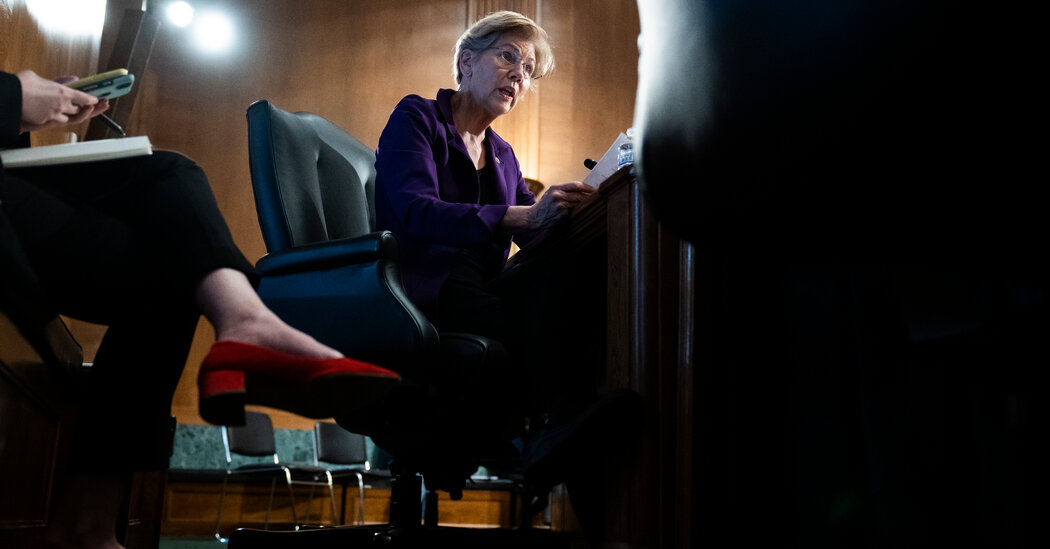A group of progressive lawmakers wants federal officials to scrutinize the proposed merger of Spirit Airlines and Frontier Airlines over concerns that
A group of progressive lawmakers wants federal officials to scrutinize the proposed merger of Spirit Airlines and Frontier Airlines over concerns that the combination could prove anti-competitive and hurt customers and workers.
The lawmakers — including Senators Elizabeth Warren of Massachusetts and Bernie Sanders of Vermont and Representative Alexandria Ocasio-Cortez of New York — warn that the merger could drive up ticket prices, worsen customer service and reduce worker leverage. They laid out those misgivings in a letter on Wednesday to Transportation Secretary Pete Buttigieg and Assistant Attorney General Jonathan Kanter, the top antitrust official in the Justice Department.
“For decades, the airline industry has been plagued by increasing consolidation, producing massive airline giants while leaving consumers and workers behind,” the lawmakers wrote. “Because the proposed Spirit-Frontier merger threatens to exacerbate these trends — including by potentially increasing prices during a period of high inflationary pressure — we urge the Department of Justice and the Department of Transportation to closely review this megamerger.”
If federal officials find that the deal violates antitrust law or fails to serve the public interest, they should oppose the merger, the lawmakers said. The letter was also signed by Senator Ben Ray Lujan of New Mexico and Representatives Rashida Tlaib of Michigan, Katie Porter of California, Jan Schakowsky of Illinois and Mondaire Jones of New York.
When Spirit and Frontier announced plans to merge last month, they argued that the combination would make aviation more competitive. The merger would produce the nation’s fifth-largest airline by market share, enabling Spirit and Frontier to better take on the four largest airlines, which control about 80 percent of the domestic market, they said.
“This is a completely different deal than any other airline transaction you’ve looked at in the past and, for that reason, we think it’s very pro-competition, very pro-consumer,” Spirit’s chief executive, Ted Christie, said in an interview with The New York Times on the day the merger was announced.
But the group of lawmakers disagreed with that characterization, arguing in the letter that “a closer look at how competition actually works in the airline industry quickly reveals the emptiness of these claims.”
Customers have a lot to lose in the merger, they said.
For one, airline mergers have been associated with higher ticket prices in the past. And while the low-cost business model employed by Spirit and Frontier may pressure other carriers to cut fares, the merger would reduce competition among such budget airlines. Also, if the new airline abandoned that business model, the industry would “lose an important check on prices,” the lawmakers said.
Spirit and Frontier are routinely criticized for poor customer satisfaction. In combining, they would dominate certain markets and might have less incentive to address customer concerns, the lawmakers said. Finally, they argued, the merger could promote anti-competitive behavior among the largest airlines.
For employees of Spirit and Frontier, the deal could make it harder to negotiate, the lawmakers said. They also warned that the merger could lead to job cuts, though Spirit and Frontier have said there will be no layoffs and, in fact, that they plan to hire 10,000 workers by 2026.
It isn’t clear how the Biden administration will act. Allowing the creation of a large low-cost airline could promote competition among the nation’s dominant carriers. But the administration has taken an aggressive stand on corporate consolidation, even singling out the airline industry in its plan to promote broader economic competition. In the fall, the Justice Department sued to prevent a domestic alliance between American Airlines and JetBlue Airways, arguing that the deal would raise prices and reduce competition.
www.nytimes.com
